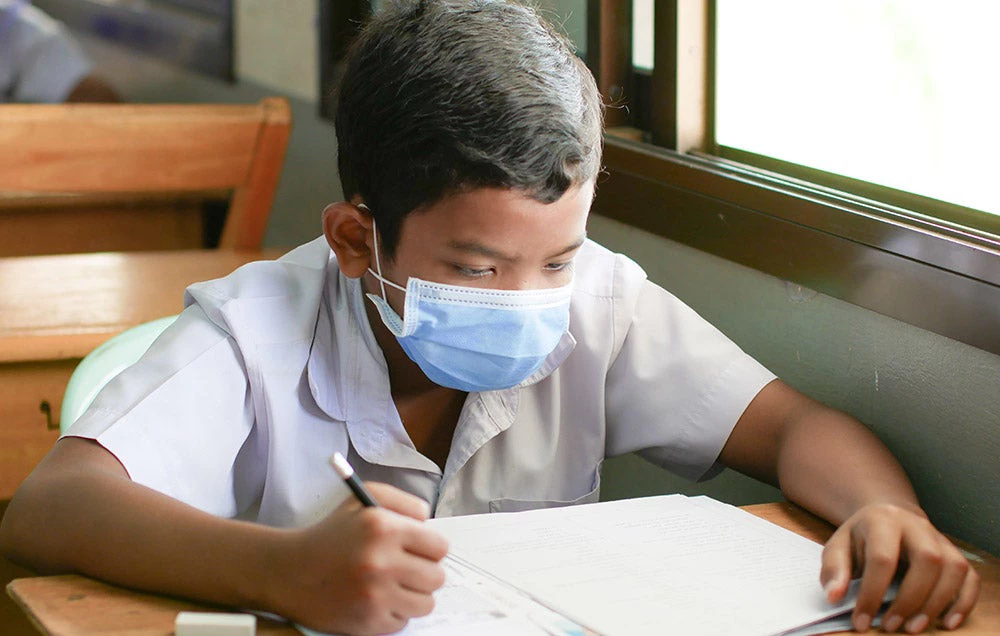
Today, nine in ten girls and boys in low-income countries (LICs) cannot read with comprehension by their tenth birthday. The pursuit of secondary education, the pathway to employment for the majority of youth in LICs, is thus severely compromised. While the full education impact of the COVID-19 pandemic is not yet known, evidence from previous crises suggest that children’s learning will suffer. Given the already low level of reading comprehension in LICs, this learning loss should be of concern to all. A robust collective response is urgently needed.
While there are few examples of countries showing significant improvements in learning among LICs, we can show meaningful progress in the next few years. To do that, we need to focus on a few objectives, measure progress against them and respond to the findings, support countries to achieve them, and hold ourselves collectively accountable for their achievement. The World Bank’s Learning Target to halve age ten illiteracy by 2030 offers a platform around which we can rally.
Focus
Sustainable Development Goal 4 (SDG4), with 7 targets, 3 means of implementation, and 43 indicators, is all-encompassing. While there is no explicit prioritization among laudable objectives, de facto prioritization is happening all the time because there are insufficient funds to meet all objectives. Before the pandemic, low and lower-middle income countries already faced an annual funding gap of $39 billion for achieving SDG4. With domestic and aid budgets hammered by a pandemic, it is hard to picture a scenario where all these objectives are adequately funded. We believe we should, as a floor objective, ensure children are on track to achieve minimum proficiency in reading and math in early and late primary (SDG4.1.1 a and b). The Learning Target is a good proxy.
What makes achieving solid foundational literacy and numeracy (FLN) so critical in LICs? First, the pre-COVID-19 levels of learning were already catastrophic and are likely to be even worse now. For example, pre-COVID-19 just two percent of Malian children met minimum proficiency levels for early grade reading. Second, practically all SDG4 goals depend on the achievement of FLN. It’s a gateway skill: we cannot achieve, in a meaningful way, twelve years of schooling for all girls without it. Finally, equity: most poor students today can ‘access’ schooling, but they drop out disproportionately because schools fail them. By focusing on universalizing FLN, we are sure to primarily address the poor and marginalized.
Measurement
Focusing on foundational learning is only the first step. Measuring and monitoring performance towards this goal need to follow. How does the education aid architecture monitor performance today? UNESCO’s Institute for Statistics (UIS) is responsible for reporting on the achievement of minimum proficiency in reading and math. However, UIS is hampered because countries do not have the necessary data. Only 17 out of 48 countries in Sub-Saharan Africa currently have recent assessments at the end of primary school of sufficient quality. This data is not comparable over time, and a lack of alignment with, or participation in, cross-national assessments makes comparison between countries impossible. This limits the ability to target resources or learn from those who are making faster progress. Furthermore, missing the chance to assess progress in earlier grades means there is little opportunity to course correct. More coordinated investment is needed to support reliable data at the country level, and UIS is a chronically underfunded agency that needs the means to do its job.
Support
To translate goals and data into action, countries will need support to increase technical know-how and build implementation capacity around improving early grade reading and math. Helping countries understand why students are failing to acquire the most basic skills and providing them with the right tools and know-how to do something about it is not straightforward. Clear guidance on improving learning outcomes at scale is limited and rarely translated effectively for use in-country; efforts such as the World Bank’s forthcoming Literacy Policy Package and USAID’s Reading MATTERS framework – which outline evidence-backed interventions, and key components of systems, for improving reading – are steps in the right direction. Countries also need support to build strong local implementation capacity.
Accountability
If we – the global education community – take our commitment to achieving the Learning Target, and SDG 4.1.1 a and b, seriously it is incumbent on us to take periodic stock of progress, reflect on why we are (or are not) improving, and change course as needed. The lack of accountability today also means that there are no immediate consequences for anyone – not technical agencies, not funders, not governments, not education systems, not civil society organizations – except students. My plea to the group of partners and accelerator countries bent on reducing learning poverty, is to keep ourselves honest, review progress regularly, and learn from each other.
What is the opportunity around the Accelerator Countries program?
It is welcome that the World Bank is translating its commitment into action by launching the Accelerator Countries program within its new Foundational Learning Compact (FLC), which will support willing countries to decrease Learning Poverty. An initial cohort of ‘accelerator countries’ have been recognized for having the political and financial commitment to support an evidence-backed program to improve foundational skills. More countries are expected to be added over time. We are also excited to see them joining forces with UNICEF in five of these countries, to increase the political salience of learning and strengthen local accountability towards results.
We know from exemplars of systems that rapidly improved learning outcomes that a sharp focus on learning, measurement, and accountability – matched with a coherent system of support – are all key components of success. We are excited by the approach of the Accelerator Countries program, because it includes some of these elements: first, it will dedicate its resources to working with countries who are sharply prioritizing learning outcomes. Second, through its government-owned ‘investment case’ approach, there is potential for increased alignment of stakeholders around a common plan. Third, the use of data to monitor progress against a learning target is at the core of the model. Finally, its investment in implementation capacity will be welcome support to countries, whose persistence and managerial skill will be key for success.
The Bill & Melinda Gates Foundation is investing in the Accelerator Countries program to help up to five accelerator countries in Sub-Saharan Africa to tackle Learning Poverty. My invitation to others is to join this collective venture and support – technically or through catalytic financing – the accelerator countries that step up to improve learning.


Join the Conversation